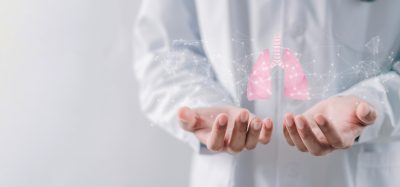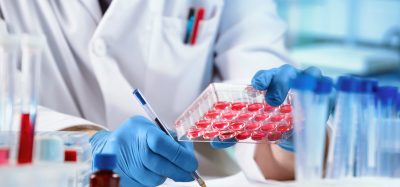Women in Stem with Laura Figulla
Posted: 30 April 2024 | Dr Laura Figulla (mbiomics) | No comments yet
Dr Laura Figulla is the CEO of mbiomics. Laura co-founded mbiomics which is dedicated to unlocking the true value of the microbiome by developing next-generation live biotherapeutics (LBPs). Throughout her career, Laura has combined her entrepreneurial spirit with her diverse academic background in business, economics, and medicine to build companies that aim to improve the lives of patients.Prior to mbiomics, Laura (co-)founded several companies that blend cutting-edge medical technology with pioneering pharmacological concepts, including Devie Medical and Coramaze Technologies.


Can you tell us about your journey in the field of STEM and the challenges you encountered along the way?
My journey in the STEM field has certainly been an exciting one, even though it might not be the most linear career path. I have a background in both, medicine and finance, and I was able to combine my passion for both of these fields in my PhD thesis in health economics. I suppose not everyone would consider my path purely STEM-driven, but, for me, I’ve found my perfect niche acting at the intersection of science, technology, and entrepreneurship by bridging scientific innovation and business.
Along the way, I’ve encountered and overcome a myriad of challenges, from navigating traditionally male-dominated arenas in the STEM field and the business world to balancing the expectations of investors while co-founding and building mbiomics. It certainly has also been challenging from time to time to navigate my career while having the joy of raising my four children but with good organisational skills and the right support system, you can overcome a lot.
What inspired you to pursue a career in STEM, and how did you overcome any obstacles or biases you may have faced?
It has always been my driving force in my career to make a tangible impact in the healthcare space. Therefore, I aimed to build my career in the STEM field by combining my background and knowledge with my entrepreneurial drive. This has resulted in me co-founding mbiomics, a company that aims to change the treatment paradigm for many chronic diseases by developing efficient and safe microbiome-based treatments.
Biomarkers are redefining how precision therapies are discovered, validated and delivered.
This exclusive expert-led report reveals how leading teams are using biomarker science to drive faster insights, cleaner data and more targeted treatments – from discovery to diagnostics.
Inside the report:
- How leading organisations are reshaping strategy with biomarker-led approaches
- Better tools for real-time decision-making – turning complex data into faster insights
- Global standardisation and assay sensitivity – what it takes to scale across networks
Discover how biomarker science is addressing the biggest hurdles in drug discovery, translational research and precision medicine – access your free copy today
While overcoming biases was never an active pursuit, I tried to stay true to my passion and expertise. Along the way, I actively advocated for myself and cultivated connections with like-minded individuals who valued my contributions irrespective of my gender or background.
Could you share an example of a specific project or research that you have worked on and the impact it has had in your field?
I am a co-founder and the CEO of mbiomics, a techbio platform company that is designing and developing a novel class of complex microbiome-based therapeutics to improve patient outcomes. Our goal is to unlock the full immunological and metabolic potential of the gut microbiome to restore healthy microbial ecosystems in several indications. This research has already begun to reshape our understanding of health and disease by revealing the importance of the gut microbiome composition in the context of several diseases. We have seen that faecal microbiota transplantation (FMT) has the potential to bring promising results to patients, however, due to certain concerns around safety, there is still research and progress that needs to happen in the space to find the optimal therapeutic composition to deliver the true potential of microbiome-based therapies for patients. This project is very dear to my heart and we have already been able to build strong initial data sets that highlight the wide variety of diseases microbiome-based treatments could have an impact on.
How has your research in STEM contributed to advancements or improvements in your field, and what potential future applications or implications do you foresee based on your work?
Our R&D team is directly contributing to the microbiome field by uncovering the intricate relationship between the microbiota and human health. Our goal is to address the root causes of diseases rather than just treating symptoms. In the future, this will enable more effective treatments for conditions ranging from gastrointestinal diseases to immune disorders, thereby impacting treatment outcomes and improving patients’ quality of life.
As a woman in STEM, what unique perspectives or strengths do you believe you bring to your work?
I believe I bring a more unbiased, strategic approach to decision-making because women tend to be judged more quickly for mistakes and we learn to navigate that by thinking ahead and being well-prepared. Additionally, I have developed a level of confidence that allows me to navigate complex scientific and business landscapes as well as stakeholder ecosystems. I also think that being a mother to four beautiful children and balancing the needs of my family with my work is something that has made me much more efficient and more resilient to stress and high-pressure environments.
What advice would you give to young women who are considering a career in STEM but may be hesitant due to societal stereotypes or perceived challenges?
Forget all the stereotypes and don’t fall into the imposter syndrome trap that many women face when entering careers in the STEM field. Instead, focus on your passion and expertise, and the impact you want to have in your field and on the world. Surround yourself with supportive mentors and peers who value your contributions and remember to never underestimate the power of perseverance.
How do you see the representation of women in STEM changing over the years, and what further progress do you believe is needed?
The number of women with careers in the STEM fields has been gradually improving over the years. At mbiomics, we are very proud to have achieved gender parity in our R&D team. However, we know that there is still a lot of work to be done. To drive further progress, it is important not only to increase the number of women entering STEM fields but also to build an inclusive culture that values diverse perspectives and experiences. This will allow women to thrive and advance to top leadership positions.
In your opinion, what can organisations and institutions do to create a more inclusive and supportive environment for women pursuing STEM careers?
It is important to create a workplace that celebrates diversity, equity, and inclusion. By implementing policies aimed at providing mentorship and leadership opportunities and addressing unconscious bias in hiring and promotion processes, we can foster a culture of respect and collaboration at all levels.
In parallel, we need to create an environment that allows both women and men to continue to build their careers while raising children.
Looking ahead, what exciting developments or advancements do you foresee in your field of STEM, and how do you envision your own research contributing to those future innovations?
There have been some advances in our field, but to date, there is no safe and effective microbiome-based treatment for severe disease even though the microbiome offers tremendous potential for treating disease. mbiomics aims to remedy this and develop a new class of bacterial products that will change the treatment paradigm for many chronic diseases and help improve human health and longevity. The microbiome field is ripe for innovation, and we intend to deliver.
About the author


CEO of mbiomics
Laura co-founded mbiomics which is dedicated to unlocking the true value of the microbiome by developing next-generation live biotherapeutics (LBPs). Throughout her career, Laura has combined her entrepreneurial spirit with her diverse academic background in business, economics, and medicine to build companies that aim to improve the lives of patients.
Prior to mbiomics, Laura (co-)founded several companies that blend cutting-edge medical technology with pioneering pharmacological concepts, including Devie Medical and Coramaze Technologies. With more than 15 years in the life science industry, Laura’s expertise extends beyond her entrepreneurial ventures, with a track record as a consultant for innovation strategy and corporate finance. As Partner and Leader of Digital Health & Life Science Innovation at EY-Parthenon, she played a significant role in developing innovative digital health business models and providing strategic and fundraising support to life science innovators and start-ups. Laura started her career in management consulting for the life science industry, she holds a Master’s degree in Finance and Economics from the University of Munich and a PhD in Health Economics/Cardiology from the University of Duisburg-Essen.
Related topics
Drug Delivery, Drug Development, Drug Discovery, Drug Discovery Processes
Related organisations
mbiomics
Related people
Laura Figulla (mbiomics)








